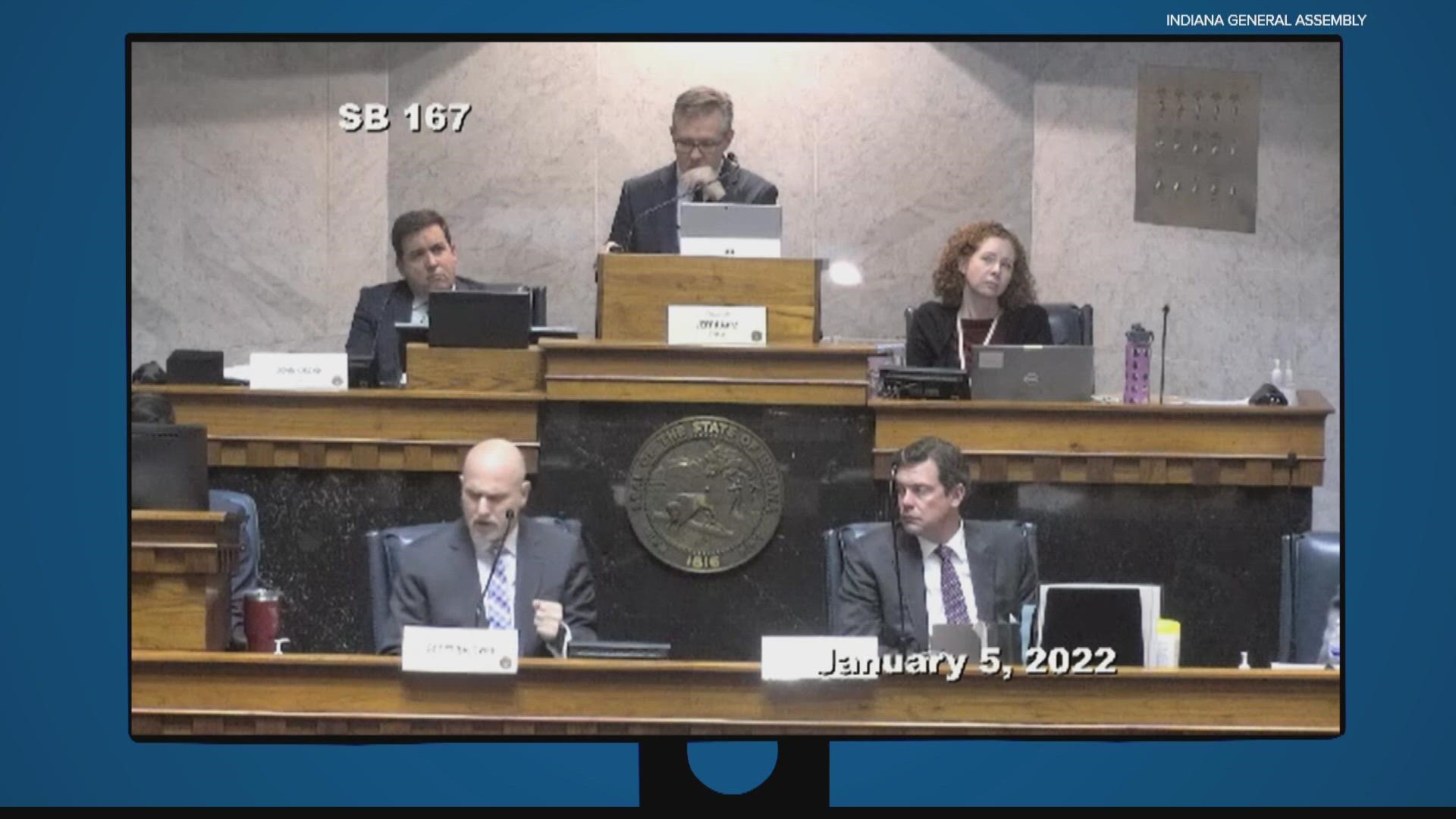INDIANAPOLIS — One controversial school bill is dead, but a "twin" bill in the Indiana House could advance a similar agenda. 13Investigates compared the two bills that supporters say will provide more parental input.
At the start of the short legislative session, there were three bills that were a response to the debates over critical race theory in schools. Two of those bills, SB 167 and HB 1134 were granted committee hearings.
A hearing led to the death of the Senate bill after the bill's author said he wanted teachers to remain neutral, even when it came to Naziism — which he opposed.
"I believe that we've gone too far when we take a position on those -isms," said Sen. Scott Baldwin (R-Hamilton County). "We need to be impartial — again I’m going to use this term. We need to be the purveyors of reason. We just provide the facts. The kids formulate their own viewpoints."
After that exchange, the Senate killed the bill. Senate President Pro Tem Rodric Bray sent a statement, saying in part there was, "no path forward for it and it will not be considered."
However, Senators may still review HB 1134.
13Investigates compared the two bills. They are not identical, but do include a lot of the exact same language, especially as it relates to the more controversial portions of the bills.
Both bills have a passage preventing the teaching of anything that causes quote "discomfort, guilt, anguish or any other form of psychological distress on account of the individual's sex, race, ethnicity, religion, color, national origin or political affiliation."
Both bills also say schools cannot provide ongoing "services for mental, social-emotional, or psychological health issues" without parental consent. SB 167 broadly prevents a “qualified school” while HB 1134 is more specific and limits a licensed psychologist, school psychologist and employees from providing those services without consent.
Families will also be able to sue if there's a violation and allow for the same penalties if a school is found in violation.
They also both would create a committee to review teaching materials and require teachers to post more learning materials online.

